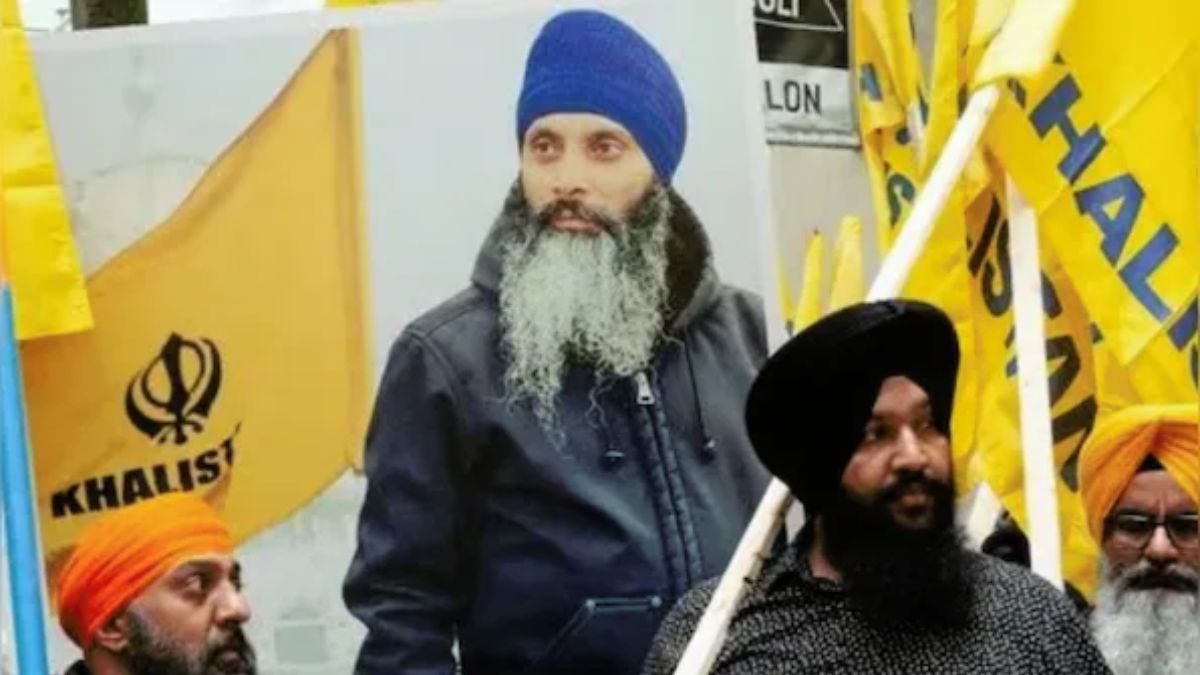Canada, under Justin Trudeau, has in recent years been behaving like a jilted lover who would not stop at anything but complete annihilation of the self, if it leads to the destruction of the other. Any semblance of a democracy, far less a matured one, is sorely missing. This was once again witnessed when the Canadian Parliament, on June 18, 2024, observed “a moment of silence” to commemorate the first anniversary of Khalistani terrorist Hardeep Singh Nijjar’s death. Relations between India and Canada have been particularly strained since the alleged assassination of Nijjar in June 2023 in British Columbia, Canada.
Canada’s Khalistani saga seems to be straight out of an Orwellian script where “war is peace… freedom is slavery… and ignorance is strength”. Trudeau has added a new terminology to the Orwellian literature: Terrorism is democracy!
Here, it needs to be emphasised that Canada’s tryst of Khalistani terror is not a new phenomenon. There has been a flourishing Khalistani ecosystem in Canada since the 1980s, when incidentally Justin Trudeau’s own father, Pierre, first gave it a booster shot. In fact, as far back as in 1982, when Prime Minister Indira Gandhi complained about the Khalistani menace to Pierre Trudeau, his Canadian counterpart, the then Canadian government chose to look the other way.
Bill Warden, Canada’s high commissioner to India in the early 1980s, thought India’s complaints were not entirely misplaced. In his memoirs, Diplomat, Dissident, Spook (2017), he recalled how two months before her assassination, Indira Gandhi sent a letter to her Canadian counterpart, John Turner, accusing “in explicit terms” that Sikh outfits in Canada were financing violence against India while receiving “multiculturalism” funds from that government. “Indirectly, Canadian taxpayers were paying to kill Indians” — a damning charge labelled by Canadian journalist-author Terry Milewski in his 2021 book, Blood for Blood: Fifty Years of the Global Khalistan Project.
Impact Shorts
More ShortsSuch was the failure of the Canadian authorities in handling the Khalistani terror in the 1980s that Warden, as Canada’s high commissioner to India, “was summoned to the (Indian) foreign ministry to receive strong protests on some eighteen occasions”. And like Nijjar today, there was one Talwinder Singh Parmar then — a dreaded Khalistani terrorist who had warned as early as in 1982 that “Indian planes will fall from the sky”. This nightmarish projection became a reality within three years with the Kanishka Air India bombing in 1985. Incidentally, India had sought Parmar’s extradition in 1982 — a request that Ottawa refused to entertain on a ludicrous ground, saying the extradition protocols between Commonwealth countries would not apply because India only recognised Her Majesty as Head of the Commonwealth, and not as Head of State!
The Kanishka Air India bombing, until 9/11, was the deadliest terrorist attack in history. But while the September 11, 2001, attack saw the initiation of the “war against terrorism”, the 1985 tragedy went largely unnoticed in the West despite the fact that of the 329 dead, 268 were Canadian citizens, mostly of Indian descent. Such was the indifference, if not disdain, for the tragedy that the victims’ families often wondered “if it were an Air Canada plane full of white people, would the government have been so indifferent?” Even Milewski wondered aloud: “The investigation took twenty years. Except for the victims’ families, it seemed that nobody was interested in the Air India bombing.”
Warden was quite categorical in saying that the Kanishka tragedy was “fully preventable”. According to him, “warnings of potential disaster had been delivered in spades. The failure of the Canadian authorities to act was, consequently, one of the root causes”.
Milewski added to this when he revealed how since 1982, “Canada’s security services knew that a terrorist group, the Babbar Khalsa, was operating in Canada; that it had dozens of killings on its record; that its leader, Talwinder Parmar, was wanted for murder; and that he was preaching that ‘Indian planes will fall from the sky’”. That’s why CSIS — the Canadian Security Intelligence Service — “watched and wiretapped Parmar for three months before the Air India bombing, starting in March 1985”.
“The surveillance made it plain that Parmar was intent on violence — so plain that Ray Kobzey, the CSIS agent in charge of watching him, immediately exclaimed on hearing that Flight 182 had gone down, ‘Parmar did it!’”
Parmar remained a free man, despite repeated Indian pleas for his arrest and extradition, just the same way Nijjar was given a free hand before he got himself killed last year.
India has done the right thing by openly confronting Canada and exposing its democratic, liberal pretensions. Over the last 12 months, the Narendra Modi government has downsized New Delhi’s politico-economic ties with Ottawa. And again, just when the Canadian Parliament did the most ‘unparliamentary’ thing by observing a “moment of silence” to commemorate Nijjar’s first death anniversary, the Indian Embassy in Vancouver responded by deciding to hold a memorial service on June 23, 2024, on the 39th Anniversary of the dastardly Kanishka bombing.
The era of clubbing terrorists with freedom fighters is mostly over — and rightly so. Only a few pariah states, such as Pakistan, still hold such dangerous ideas. Canada, more so under Trudeau, seems to be going the Pakistan way. India must sharpen its diplomatic knife to further expose Canada’s propensity to run with the modern, liberal, democratic world while hunting with the terrorist hounds of the Khalistani kind. And the way new India is taking the hypocritical Canadian challenge head on, it’s obvious the Trudeau & Co won’t be going unchallenged this time.
Views expressed in the above piece are personal and solely that of the author. They do not necessarily reflect Firstpost’s views.
The author is Opinion Editor, Firstpost and News18. He can be reached at: utpal.kumar@nw18.com
)